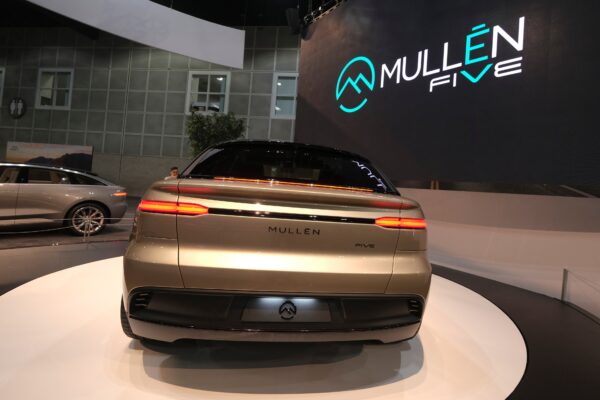What Elon Musk’s Latest Technology Means for Our Triad
We saw a scary picture the other day.
It was a rat with a computer connection sticking out of its head.
Think about that. With the USB port between his ears, this oh-so-lucky rat can now connect to the nearest printer, hard drive… or internet connection.
This cyborg rat is the latest work of Elon Musk and another of his high-tech startups, Neuralink.
But hooking rats up to computers is not the company’s final goal.
Nope… it’s up to something a whole lot crazier.
By the end of this year, Neuralink plans to hook the first human brain to the internet. Through a complicated series of lasers, tiny wires and a small device that neatly fits behind the ear like a hearing aid, daring humans will soon get a direct, high-bandwidth connection not just to a computer but also to all that is the world wide web.
Tech junkies rejoice.
Doctors smile.
And those of us who don’t need a computer to do our thinking wonder where a good place is to dig a bunker.
Investors Go Crazy
Here’s what scares us the most.
There’s no doubt that if Musk pulls off this ambitious project, we’ll be on the cusp of something big. Early investors won’t just get in on the next Apple… but they’ll also get a slice of a millionaire-making medical giant like Medtronic.
Within a decade of the product’s release into the market, it’ll be a must-have item.
Its spread will be no different from the smartphone’s. A Neuralink device will someday be considered essential household equipment. If a poor sap doesn’t have one or, oh my, can’t afford one, he’ll be at a severe disadvantage.
Try keeping a decent job without a smartphone.
Try graduating college without one.
Heck… try dating without a smartphone.
We can’t help but scratch our head and think a device that turns us into supersmart beings will be considered a must for anybody looking for a competitive edge.
Will companies soon favor the super-connected? Will colleges someday require an implant?
Worse yet, will today’s technology go the way of the vinyl record, the eight track and the rotary phone?
The technophobe in us imagines the family dinner of the future. It’s a bunch of drooling, blurry-eyed folks hardly moving or making any sounds or movements that indicate life… but yet they’re communicating with folks all across the world, studying for their next big test or, more likely, comparing themselves to their neighbor on Facebook.
They’re doing it all with their brain waves… and a monthly subscription to their favorite app.
But we can’t harp on the downside without pondering the upside.
Saving Lives?
Musk isn’t a bad guy. He’s not looking to create a race of mindless cyborgs… at least not on purpose.
His intent is good.
We have no doubt the first Neuralink devices will find themselves attached to the brain of someone who truly could use the help.
They could help folks with epilepsy, perhaps Parkinson’s and Alzheimer’s disease, and maybe even ALS.
That would be a win… a huge win that we could stand behind.
Who knows, we may need one someday.
But what if we don’t?
Should Elon Musk be arrested for creating such devious technology… or should he be lauded for saving ourselves from ourselves?
We don’t have the answer.
But here’s what we know.
Liberty, Know-How and Connections are what matter most. Have them and you have everything.
If we stand against Neuralink, we’re fighting technology that could greatly enhance our Connections. We’re fighting technology that could bring great Know-How straight to our mind. And fighting the trend with laws or interference would certainly curtail Liberty.
Why is it then that this technology feels so dangerous?
Ah… that’s the rub of it.
It’s all fake. It’s an artificial version of the Triad – when we know only the real one will do.
Just as smartphones have degraded the way we communicate… just as they’ve made it tougher to retain knowledge… and just as they’ve eroded some of our most important critical thinking skills… a brain implant will take things to the next level.
So… should you get one when they are available?
If history is any indicator, you won’t have a choice.
For all you folks reading this essay on a smartphone, you know exactly what we mean.
About Andy Snyder
Andy Snyder is the founder of Manward Press. An American author, investor and serial entrepreneur, Andy cut his teeth at an esteemed financial firm with nearly $100 billion in assets under management. In the years that have followed, he’s become sought after for his outspoken market commentary.
Andy and his ideas have been featured on Fox News, on countless radio stations, and in numerous print and online outlets. He’s been a keynote speaker and panelist at events all over the world – from four-star ballrooms to Capitol hearing rooms – and has rubbed shoulders with lawmakers, lobbyists and Washington insiders. He’s had lunch with John McCain… fished with America’s largest landowner… and even appeared on the Christmas card of one of Hollywood’s top producers.
Today, Andy’s dissident thoughts on life, Liberty and investing can be found in his popular e-letter, Manward Financial Digest, as well as in the pages of Manward Letter. He also is at the helms of the award-winning VIP Trading Research Services Alpha Money Flow and Venture Fortunes. Andy resides on 40 bucolic acres in rural Pennsylvania with his wife, children and a steadily growing flock of sheep.






